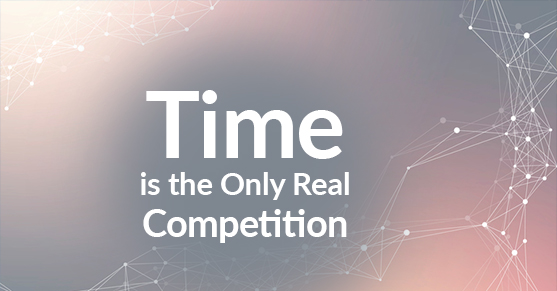Business leaders, makers, and doers never have enough time in their day. The to-do lists are never-ending: performance targets always need to be met, problems need to be addressed, and challenges need to be solved. Typically, the more urgent the issue, the faster it gets attention. And therein lies the key to business success: how do you make the most of your time? And, just as importantly, how do you get the time (aka “attention”) of your potential future customers when their days are just as busy?
When it comes to your organization attracting the focus of your market customers, there’s a lot of information from very qualified marketers that can answer that question more eloquently than me. However, when I think of myself as my own potential customer, there’s only one thing that matters: value my time. That means give me something that is more valuable than my time in terms of relevant practical return.
Don’t waste my time with a lot of words. Don’t take me down rabbit holes. Don’t lose me in translation with complex language. Don’t make me have to think too hard.
DO make whatever you share interesting. DO encourage me to think about and apply what you’re sharing to my own organization. DO understand me enough to know what I’m interested in. DO help me become an even better business leader so the result benefits my employees, partners, and customers. DO meet me where I am so it’s easy for me.
Basically, help me make the most of my time and I’ll be interested in what you have to say. Which brings me to my next point.
The Meaning in Time
Sometimes we’re tempted to put time into the things we know or that seem easier. We don’t want to stretch into discomfort and, yet, that’s where we need to go to grow. The hardest thing is often the best thing.
I’ve heard it said that the biggest problem is that we always think we have more time but we don’t. We all have the same amount of time in a day. And what we don’t do may not ever get done. The test in achieving more is how we choose to invest our time in each day.
We know we have to cross to-do items off the checklist, but that’s usually not the most important thing. Sometimes the best investment of your time is in conversations with your customers and employees so you know what matters to them. Sometimes you need to take massive action to solve a challenge. And sometimes, it’s important to give yourself time to think about new ideas, or how to grow, or a next-level strategy.
I’ve learned over the years something that might be helpful for you to know: you control time as you experience it. What? Let me explain.
Einstein described how time is relative by saying, “When you sit with a nice girl for two hours, you think it’s only a minute, but when you sit on a hot stove for a minute, you think it’s two hours. That’s relativity.” That’s what I’m talking about here.
As a business leader, you are here to create and lead positive change. The measurement of your change is balanced by how you measure your success. The bigger the change, the more time you feel has passed. That means you can control time by how you perceive it.
Let’s say you need to prepare a presentation and it’s on a topic that’s important but not really a personal interest of yours. It’s likely the presentation might take several hours to put together, and you’ll probably feel every one of them. Then, think about preparing a presentation on a personal passion point — like model planes or golf – and you’ll probably work faster and lose track of time as you go. Time is relative, depending on how you relate to what you’re doing and the degree of “change” created in the result you produce.
Time Disappears for Peak Performers
Bringing it all together, where you invest your time and it seems to disappear is your personal zone for achievement. It shows where you have passion and can make even greater change happen than what you might think is possible because it feels easy. This is the secret of peak performance, both for you and your employees.
And, while it’s easy to think the competition is “out there” with some other firm vying for your future customer’s business, the real competition is getting their attention. However, when you have someone’s attention, you have their time. And when you have time on your side, you can make the most of your customer’s business — and your goals — in every way.
This post was originally published here.

